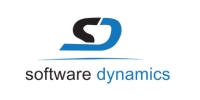Research conducted by Auckland’s University of Technology reveals that over one in ten workers may be experiencing burnout, as evidenced by symptoms such as struggling to maintain focus, experiencing emotional exhaustion, displaying indifference towards work, and uncontrollable emotions. Interestingly, managers are 219% more likely to experience burnout, which is concerning as they lead and motivate their teams.
While the COVID-19 pandemic has contributed to the rising levels of stress and burnout in the past two years, it is not the sole cause. The pandemic brought significant disruptions, such as the sudden shift to remote work, increased absenteeism, and a wave of resignations known as the great resignation. It led to remaining employees shouldering additional responsibilities, putting a strain on managers who had to maintain productivity with fewer resources.
However, evidence suggests that there are underlying factors contributing to this issue even before COVID-19. A pre-pandemic study conducted by BusinessNZ and Southern Cross in 2019 found that stress levels had risen by 23.5% between August 2017 and August 2019. The exact reasons for this increase remain unclear, but one potential cause is the “Hustle Culture” prevalent in industries like white-collar jobs, professional services, and the technology sector. These work environments often glorify busyness, and employees feel pressured to impress their superiors by working long hours and being constantly available.

Modern society imposes the belief that individuals must strive to achieve everything and maximize their productivity at all times. This mindset pressures people to excel in various areas of their lives. They feel compelled to be exemplary parents, maintain physical fitness through activities like Yoga and gym workouts, and adhere to strict dietary standards. Moreover, the widespread use of smartphones, social media, and business collaboration apps has eliminated the boundaries between work, home, and family life. Consequently, individuals are constantly bombarded with updates, emails, and reminders, fueling an addiction to screens and smartphones.
Protecting Manager Well-being
For managers who bear the responsibility of meeting targets and overseeing their team, this pressure is further intensified. They find themselves constantly checking and responding to work-related emails. In some countries, such as France, legislations grant individuals the right to disconnect from work outside of working hours. However, managers shoulder additional layers of responsibility as they actively take charge of the well-being of their team members alongside their own. How can managers proactively protect and support their employees in achieving crucial strategic goals every quarter?
Gallup, a renowned people and analytics consultancy, has conducted extensive research on the increasing rates of burnout among managers. They have identified several key factors that contribute to manager burnout:
- Unfair treatment in the workplace.
- Overwhelming workload.
- Lack of clarity regarding roles and responsibilities.
- Insufficient communication.
- Unrealistic time pressure.
- Inadequate support from senior management.
Addressing and mitigating manager burnout, Gallup provides specific and easily understandable recommendations.
Recognize Signs of Stress and Burnout
Stress is inherent in all jobs and motivating in moderation. Extreme levels of stress and burnout need proactive action. Developing a collective awareness within the organization to recognize symptoms of excessive stress can help protect valuable managerial assets. By taking a serious approach to managing stress, organizations can ensure their managers remain strong, healthy, motivated, and capable of leading their departments and teams effectively, even in the face of significant challenges.
The Power of Communication
Even in the aftermath of the COVID-19 pandemic, the global landscape is uncertain. Ongoing conflicts with a rise in global inflation have introduced intimidating uncertainty. For organizational survival and success, businesses must adapt rapidly. In this context, managers must provide reassurance to their teams and honestly convey the implications of any changes to the usual course of business. By maintaining open lines of communication with managers throughout the organization, leaders can keep everyone informed and prevent teams from veering off track. Managers must conduct employee performance management aligned with the most current business direction and strategy. Inaccurate information must not be allowed to derail progress.
Leveraging Technology
Take advantage of technology to streamline processes. Performance management software, for example, can facilitate quick pulse surveys to gauge the overall sentiment within teams across different areas. This data can highlight areas requiring attention and improvement.
Managerial Assessments
Senior managers and directors may assume they can manage themselves. However, it is crucial to prevent managers from feeling stagnant in their roles by offering career development plans and highlighting how they can grow within the organization. If career growth is impossible within your organization, they may seek opportunities elsewhere. Managers should also be encouraged to implement the same strategies they recommend to their teams, such as prioritizing downtime, switching off after work hours, and accessing support for their well-being, including mental health. Performance management software can help schedule and facilitate regular coaching sessions with senior managers, making it a consistent practice rather than something that is done when problems arise.
Prioritize Skill Development
Boosting the confidence and effectiveness of managers is crucial in combating stress and burnout. Many individuals promoted to managerial positions based on their previous success require deliberate development. Merely reading books or company manuals is insufficient. Invest in enhancing managers’ skills and competencies, enabling them to effectively lead teams. By empowering managers to tackle challenges with confidence, they can thrive instead of feeling overwhelmed. Implementing an effective performance appraisal system can help identify their existing skills, competencies, and areas for improvement.
Building a Thriving Work Environment
Nurturing resilient and effective managers is necessary for combating stress and burnout in the workplace. By investing in their skills and competencies, and leveraging technology to streamline processes, organizations can empower their managers to lead with confidence and navigate any challenges that come their way. Moreover, by promoting a shared understanding of stress and burnout and taking proactive measures to address them, organizations can safeguard the well-being of their invaluable managerial assets. Remember, with support and a proactive approach managers can remain strong, motivated, and capable of leading their teams to success, ultimately propelling the entire organization forward. Together, we can create a work environment that promotes resilience, growth, and thriving for all.



